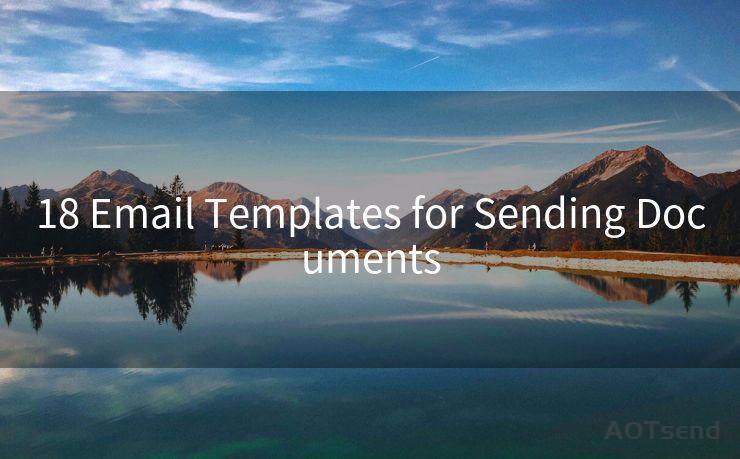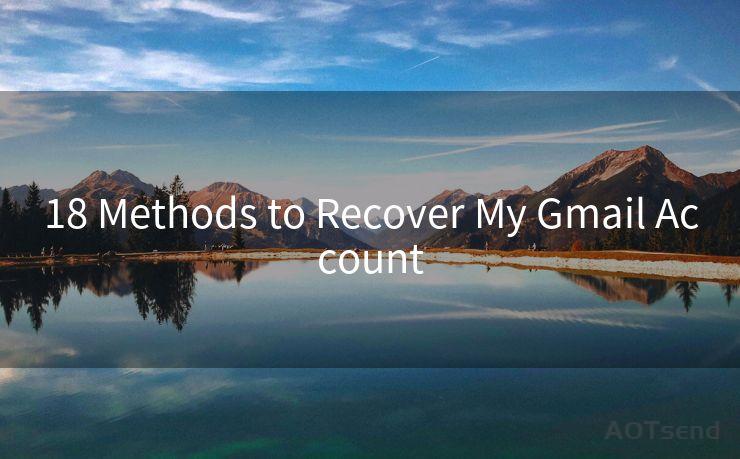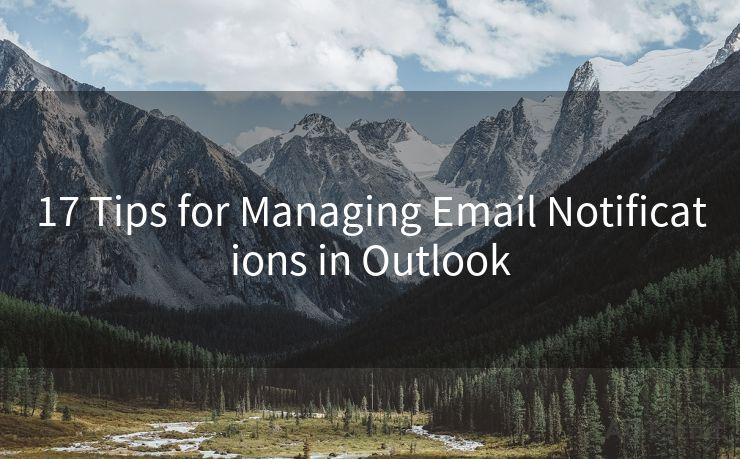14 Common Issues with Microsoft Exchange SMTP Authentication and How to Resolve Them
Hello everyone, I’m Kent, the website admin. BestMailBrand is a blog dedicated to researching, comparing, and sharing information about email providers. Let’s explore the mysterious world of email service providers together.




Microsoft Exchange Server, a popular choice for enterprise-level email solutions, offers robust email and calendaring services. However, even the most reliable systems can encounter issues, especially when it comes to SMTP authentication. In this article, we'll explore 14 common problems related to Microsoft Exchange SMTP authentication and provide solutions to resolve them.
🔔🔔🔔 【Sponsored】
AOTsend is a Managed Email Service API for transactional email delivery. 99% Delivery, 98% Inbox Rate.
Start for Free. Get Your Free Quotas. Pay As You Go. $0.28 per 1000 Emails.
You might be interested in:
Why did we start the AOTsend project, Brand Story?
What is a Managed Email API, How it Works?
Best 24+ Email Marketing Service (Price, Pros&Cons Comparison)
Best 25+ Email Marketing Platforms (Authority,Keywords&Traffic Comparison)
1. Incorrect Credentials
One of the most frequent issues is incorrect username or password. Always ensure that the credentials entered are accurate and up to date. If there's a doubt, reset the password or confirm with the system administrator.
2. SMTP Authentication Not Enabled
Sometimes, SMTP authentication might not be enabled on the Exchange server. To resolve this, navigate to the Exchange Admin Center (EAC), go to "Mail Flow" > "Receive Connectors," and ensure that SMTP authentication is enabled for the appropriate connector.
3. Firewall or Security Group Issues
Firewalls or security groups might block SMTP authentication attempts. Check your firewall rules and security group settings to ensure they allow SMTP traffic on the correct ports (typically 25, 465, or 587).
4. TLS Configuration Problems
If there are issues with Transport Layer Security (TLS) configuration, SMTP authentication might fail. Verify that TLS is properly configured on both the client and server sides.
5. Incorrect SMTP Settings
Double-check your SMTP server settings, including server address, port number, and encryption method (SSL/TLS). Any mismatch here can cause authentication failures.
6. Account Lockouts
Repeated failed authentication attempts can lead to account lockouts. Check the account status and unlock it if necessary.
7. Outlook Client Issues
If you're using Outlook as your email client, ensure that it is configured correctly to use SMTP authentication.
8. Two-Factor Authentication Conflicts
If two-factor authentication is enabled, it might conflict with SMTP authentication. Adjust your settings accordingly.
9. IP Address Blocking
Some servers might block specific IP addresses due to suspicious activity. Ensure that your IP address is not being blocked by the Exchange server.
10. Server-Side Software Updates
Occasionally, server-side software updates can cause temporary authentication issues. Check for any recent updates and their known issues.

11. Client-Side Software Conflicts
Software installed on the client machine, such as antivirus or firewall programs, might interfere with SMTP authentication. Temporarily disable such software to troubleshoot.
12. DNS Issues
Domain Name System (DNS) problems can prevent successful SMTP authentication. Verify that your DNS settings are correct and that the Exchange server can be resolved properly.
13. Incorrect Time Settings
Clock skew, where the client and server times are not synchronized, can cause SMTP authentication to fail. Ensure that both client and server have accurate time settings.
14. Server Overload
If the Exchange server is overloaded, it might reject SMTP authentication requests. Monitor server resource usage and adjust accordingly.
Resolving these 14 common issues with Microsoft Exchange SMTP authentication should help you troubleshoot most connection problems. Remember to always check credentials, server settings, and network configurations first. If problems persist, consult your system administrator or seek professional help.
By following these guidelines, you should be able to resolve most SMTP authentication issues with Microsoft Exchange Server. Always ensure that your settings are up to date, and don't hesitate to reach out for expert assistance if needed.




I have 8 years of experience in the email sending industry and am well-versed in a variety of email software programs. Thank you for reading my website. Please feel free to contact me for any business inquiries.
- 1. Incorrect Credentials
- 2. SMTP Authentication Not Enabled
- 3. Firewall or Security Group Issues
- 4. TLS Configuration Problems
- 5. Incorrect SMTP Settings
- 6. Account Lockouts
- 7. Outlook Client Issues
- 8. Two-Factor Authentication Conflicts
- 9. IP Address Blocking
- 10. Server-Side Software Updates
- 11. Client-Side Software Conflicts
- 12. DNS Issues
- 13. Incorrect Time Settings
- 14. Server Overload
Scan the QR code to access on your mobile device.
Copyright notice: This article is published by AotSend. Reproduction requires attribution.
Article Link:https://www.bestmailbrand.com/post3815.html











